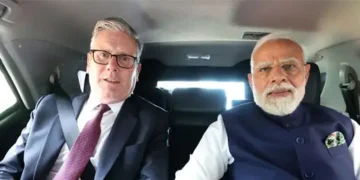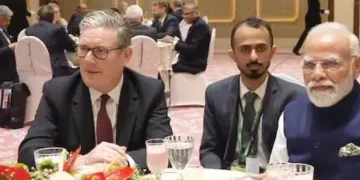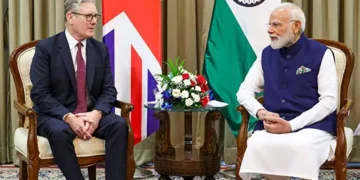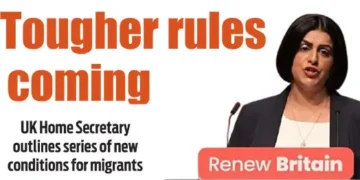Blitz Bureau
NEW DELHI: India and the UK have signed a £350 million ($468 million) Government-to-Government deal for British Lightweight Multirole Missiles (LMMs) for the Indian Army’s tactical units even as Prime Minister Narendra Modi and his British counterpart Keir Starmer unequivocally and strongly condemned terrorism and violent extremism in all its forms and manifestations.
A joint statement issued after the meeting between PM Modi and Starmer said the deal “will further support India’s air defence capabilities and, in the spirit of Atmanirbhar Bharat, meet the current and future requirements of the Indian Ministry of Defence, and support a long-term collaboration on complex weapons between the two countries”.
In a separate release, the UK Government also said that 64 Indian companies have so far committed to invest £1.3 billion (or ₹15,430 crore) in the UK., a sign of the growing business confidence boosted by the India-U.K. trade deal. Starmer’s two-day fruitful two-day visit to India’s financial capital, Mumbai, involved the UK’s largest-ever trade delegation of more than 100 CEOs, entrepreneurs, university vice-chancellors and cultural leaders.
On ‘X’ PM Modi said that the India-UK friendship is progressing rapidly and is full of enthusiasm. Starmer posted on X and wrote, “Our partnership with India is proving beneficial for the British people. 10,000 new jobs have been created and 1.3 billion pounds have been invested in Britain. Support to British jobs and British businesses”. According to the India-UK Joint Statement, the two also agreed to expand bilateral exchanges between the armed forces of India and UK through joint exercises, training and capacity building. PM Modi welcomed the port call of UK’s Carrier Strike Group and the Royal Navy’s exercise KONKAN with the Indian Navy.
PM Modi and Starmer reiterated their shared commitment to global peace, prosperity and a rules-based international order. The two leaders expressed support for a just and lasting peace in Ukraine in accordance with the international law, including the UN Charter and welcomed the ongoing diplomatic efforts made by various nations to achieve this. They also reiterated their commitment to peace and stability in the Middle East, calling for restraint, protection of people and complying with international law and refraining from taking actions that could further escalate the situation and compromise regional stability.
Both leaders expressed their support for the US peace plan for Gaza and their commitment to working with regional partners to secure an immediate and lasting ceasefire, the release of the hostages and the delivery of humanitarian aid, and their shared commitment to a lasting and just peace as a step towards a Two-State solution, with a safe and secure Israel, alongside a viable Palestinian state.





























